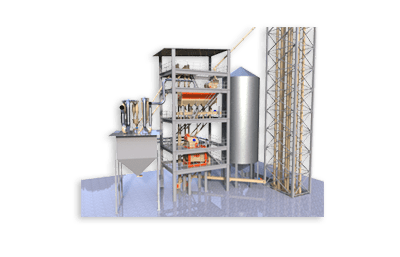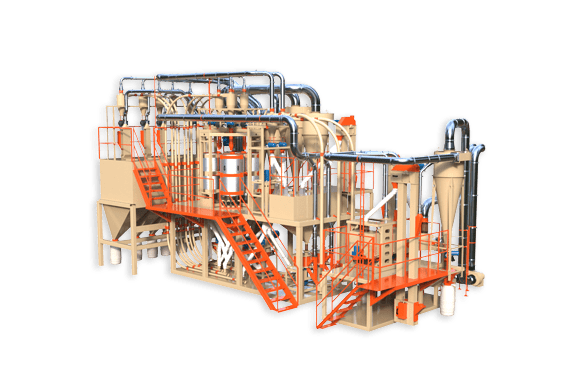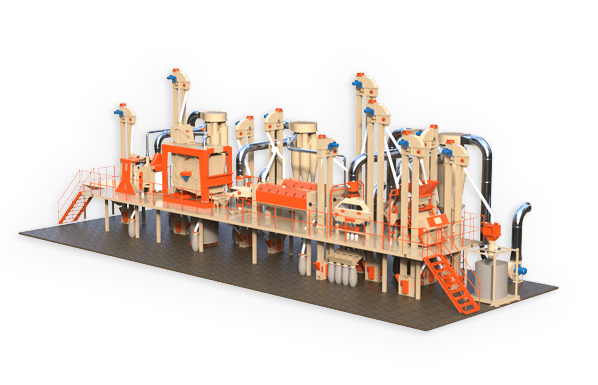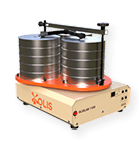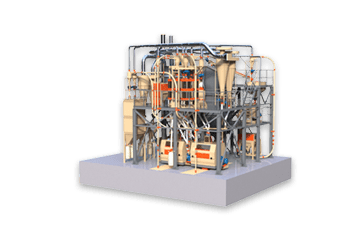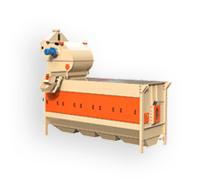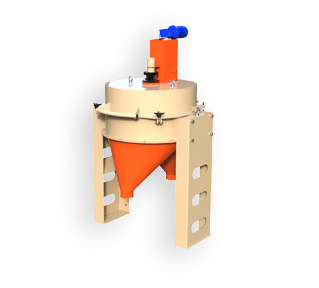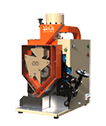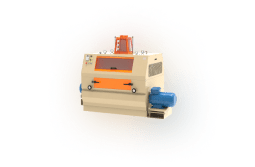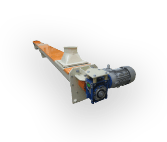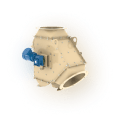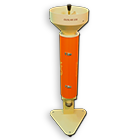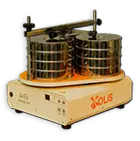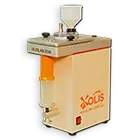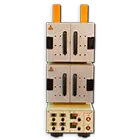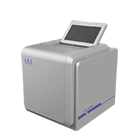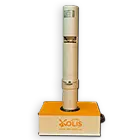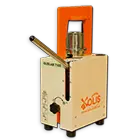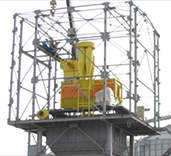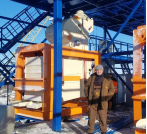Grain quality control
Vereshchinsky A.P., gene. Director of LLC “OLIS”, Candidate of Technical Sciences.
“Storage and processing of grain” – No. 10 (136), 2010.
Quality control of grain and its processing products in the field of agribusiness has been and remains the most pressing issue, because It is the quality of the grown grain and the accuracy of the quality indicators obtained as a result of further analyzes that are the key to financial well-being.
Special attention should be paid to the development of laboratory facilities. The technical level of equipping the laboratory with instruments directly affects the accuracy of the obtained analysis results and, as a consequence, the economic performance of the enterprise. Rational equipping of a laboratory with equipment is an important and quite complex scientific and technical problem, since the selection of the optimal set of equipment is a multifactorial task that has many particular solutions. The optimal set of devices is formed for a specific task, taking into account the technical, organizational and economic requirements of production as much as possible.
Our company is engaged in the development of technologies and production of equipment for grain processing. Using laboratory equipment to control the quality of grain and its processed products, we found that most of them are expensive imported instruments, or domestic ones, which date back to Soviet times and are obsolete, given modern technological advances in the field of analysis. In view of this, a new direction was opened in the activities of our company in 2007 – production of laboratory equipment. During this time, our company has developed and mass-produced 12 types of laboratory products.
We paid serious attention to the issues of sampling and isolating samples, since based on the results of the analysis of samples isolated from the average sample, a conclusion is made about the quality of the entire batch. RPO – manual multi-level samplers – allow you to take samples simultaneously at several levels at an embankment depth of up to 1.5 m , up to 2 m, up to 3 m. Universal grain divider UDZ-1M – is intended for isolating an average portion of grain from the initial dose, oilseeds, legumes: wheat, rye, barley, buckwheat, corn, beans, soybeans, oats, rice, peas, sunflowers and other crops that meet basic and restrictive quality standards. The versatility of this device is the possibility of using it for rapeseed, unlike existing analogues. Simultaneously with division, the device mixes the product. Also included in the category of devices for preliminary assessment of grain quality is purka liter working PH-2, designed to determine the nature of grain (weight of grain in one liter). According to the requirements of DSTU 3215-95 “Metrological certification of measuring equipment”, PH-2 passed metrological tests with the development and approval of certification and verification methods. The measures taken provide the opportunity to carry out verification at any authorized State Center for Standardization, Metrology and Certification.Diaphanoscope DSZ-3is designed to determine the glassiness of grain by its optical properties. The laboratory huller USHZ-1 is intended for peeling laboratory samples of grain of agricultural crops in order to prepare for subsequent determination of quality indicators. The product is used in laboratories of grain receiving, cereal and grain processing enterprises, in breeding and research organizations, and other organizations involved in assessing the quality of agricultural crops and their processed products. The product is used to determine the peeling coefficient of crops with an adherent shell (wheat, barley, millet, soursop, corn, peas).
Grinding grain when determining its quality is an important operation necessary in determining most indicators. Laboratory millLZM-1 is designed for grinding samples when determining moisture content. The operating principle of the mill is based on grinding the product with a steel two-bladed knife rotating at high speed.Laboratory mill LMT-2 is intended for sample preparation for analysis on an infrared analyzer, when determining the quantity and quality of gluten, ash content, falling number, protein content, fat and other indicators, the determination of which requires grinding the product according to a given size.
Recommended for use in laboratories to determine the infestation of grain by pests; weed and grain impurities, size and content of small grains of wheat, rye, oats, barley, millet, buckwheat, corn; quality of cereals; flour size; feed grinding size; infestation of flour with barn pests. The versatility of this product lies in the fact that the design provides for the installation of one or three sets of sieves with a shell diameter of 200 mm, or one set of sieves with a shell diameter of 300 mm.
The quantity and quality of gluten are important indicators that characterize the technological properties of grain and determine the quality of the final product – bread. In accordance with GOST requirements, analyzes are to be carried out both manually and mechanized. The TL-2 dough mixer is designed for kneading dough using a mechanized method from whole-ground wheat grain (meal) and flour baking and pasta grinding when determining the quantity and quality of gluten.
Correct and efficient management of technological processes for receiving, storing and processing grain raw materials is impossible without measuring moisture at all stages of production. According to GOST 13586.5-93, moisture determination is carried out by dehydrating a sample of the product in an air-heating cabinet at a fixed temperature and drying duration, followed by determining the weight loss of the sample. The same GOST established the methodology for implementing this method, indicated the list of necessary equipment and its required characteristics. Due to its special significance in the implementation of the method under consideration, strict requirements are imposed on the air-heating cabinet used for drying the samples. The features of such a cabinet should be: high accuracy in maintaining the temperature of the heated air flow, its uniformity throughout the internal volume of the drying chamber, as well as the placement of portions of dried samples in bottles on a special table rotating at a given frequency. According to GOST 13586.5-93, the recommended drying cabinet SESH-3MU meets these requirements. a>.To ensure that the necessary requirements for the product are met, technical specifications TU U 33.2 – 33556710-001:2008 “Drying cabinet SESH-3MU” were developed and approved, as well as design and other documentation necessary for installation of the specified product into mass production.According to the requirements of DSTU 3215-95 “Metrological certification of measuring equipment”, SESH-3MU passed metrological tests at the State Enterprise “Ukrmetrteststandart” (Kiev) with the development and approval of certification and verification methods. The measures taken provide the opportunity to carry out certification and verification at any authorized State Center for Standardization, Metrology and Certification.
When storing grain, one of the main parameters that must be constantly monitored is temperature. The low thermal conductivity of the grain mass contributes to the accumulation of heat in its individual areas and provokes the development of processes leading to quantitative and qualitative losses of the product. Digital thermal rod TC-2, TC-3 is used to measure the temperature of bulk materials prone to self-heating during storage.
Used when obtaining an oil sample from sunflower, rapeseed and other oilseeds for further analysis.
When equipping a laboratory, it is necessary to clearly understand the sequence of all technological processes with raw materials and their processed products, as well as clearly know the final goal of production. That is why the team of our enterprise is a team of certified specialists who are able to monitor and analyze trends in the development of world achievements in this field, and are also ready to give advice on any issue of equipping the laboratory. As a rule, when equipping a new laboratory, it is more profitable for the customer to purchase equipment from one supplier. In view of this, in addition to selling equipment of our own production, we provide comprehensive equipment for grain laboratories, supplying the best equipment from other manufacturers. To satisfy the needs of our clients to the maximum possible extent, we are ready to provide a wide range of laboratory equipment and consumables, consultations with qualified specialists, an individual approach to each client, competitive prices and a flexible system of discounts, delivery to any region.
Today, it is difficult to imagine the equipment of laboratories for quality control of grain, flour and cereals without the instruments of OLIS LLC. Our products are used by such enterprises as state grain inspections, elevators, food processing plants, flour mills, flour mills, cereal factories, feed mills, breweries, sugar factories and oil factories; grain terminals, agricultural firms, baby food factories, poultry farms and many others. etc.
The modern level of market relations requires guarantees of a certain level of quality – and it is precisely such guarantees as a manufacturer that we provide to our clients.


